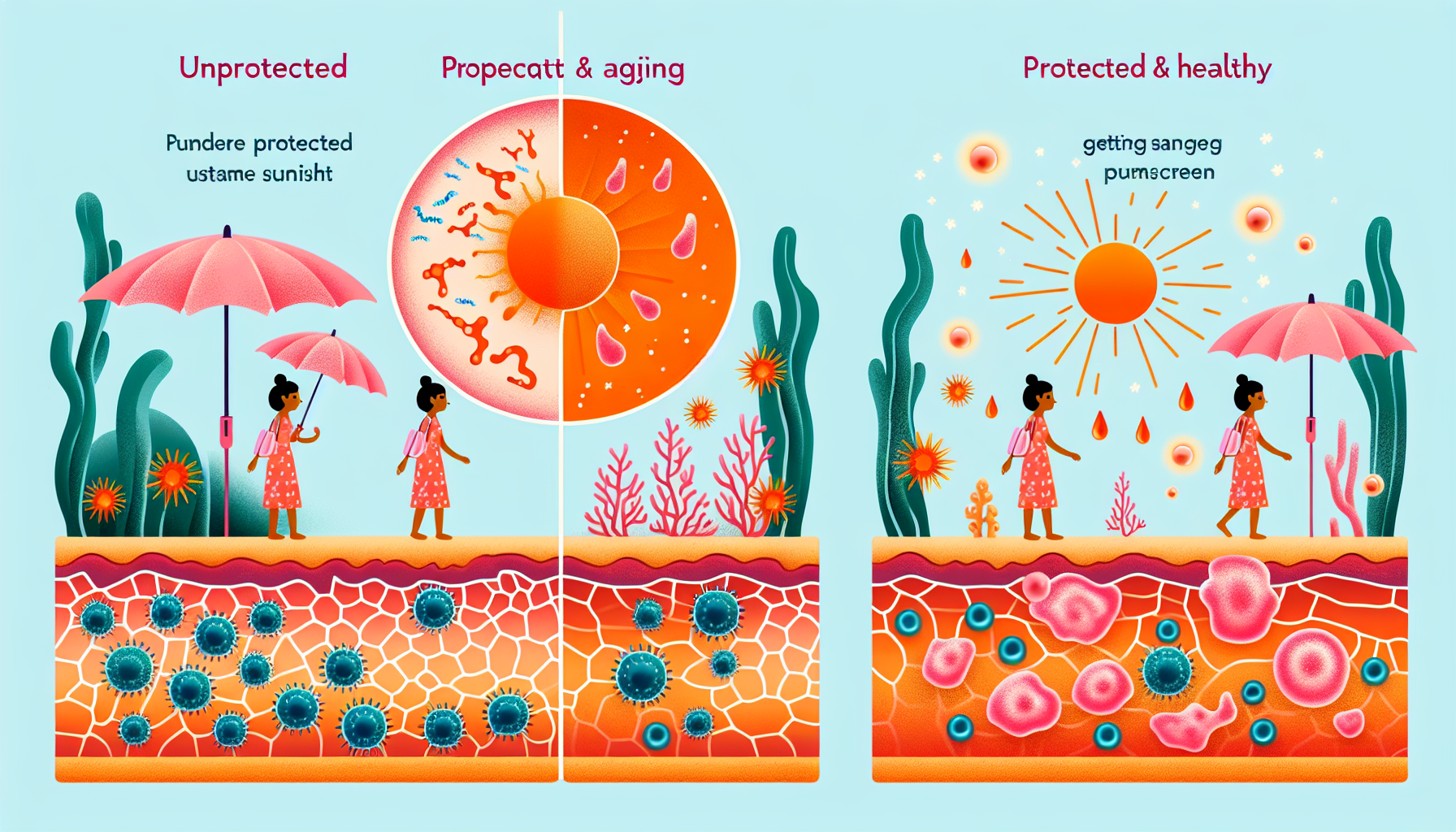Sunscreen is an essential component of any skin care routine, not only for its role in protecting against sunburn but also for its broader health benefits. The sun emits ultraviolet (UV) radiation that can cause not just immediate damage, such as sunburn, but also long-term skin problems, including premature aging and an increased risk of skin cancer. Understanding the importance of sunscreen in maintaining skin health is vital for anyone looking to preserve their skin’s vitality and overall well-being.
Understanding UV Radiation and Its Effects on Skin
There are two types of UV radiation that are harmful to the skin: UVA and UVB. UVA rays penetrate deep into the skin, leading to signs of aging such as wrinkles and age spots. UVB rays, on the other hand, are responsible for sunburn and play a significant role in developing skin cancer. By using sunscreen, you can filter out a significant amount of these harmful rays, thereby reducing your risk of skin damage.
Sunscreen acts as a shield, with various active ingredients that either absorb, scatter, or reflect UV light before it damages the skin. The Sun Protection Factor (SPF) rating indicates the level of protection a sunscreen offers against UVB radiation. However, it’s essential to choose a broad-spectrum sunscreen, which protects against both UVA and UVB rays, to ensure comprehensive skin health.
For those keen on understanding more about the different types of UV radiation and their impact on the skin, this resource provides in-depth information and advice.
The Long-Term Benefits of Sunscreen Use
Regular sunscreen use can have numerous long-term benefits for skin health. By blocking UV radiation, sunscreen helps prevent the development of skin cancer, including melanoma, which can be deadly. It also prevents premature aging caused by the sun’s rays, such as wrinkles, leathery skin, and hyperpigmentation.
Furthermore, sunscreen use contributes to the maintenance of an even skin tone by preventing discoloration and dark spots from sun damage. For individuals interested in exploring the connection between sunscreen use and long-term skin health, this scholarly article offers a comprehensive analysis.
Choosing the Right Sunscreen
When selecting a sunscreen, it’s important to choose a product that suits your skin type and lifestyle. For daily use, a sunscreen with an SPF of at least 30 is recommended. For extended outdoor activities, water-resistant sunscreens with a higher SPF may be necessary. Additionally, individuals with sensitive skin may benefit from physical or mineral-based sunscreens that contain zinc oxide or titanium dioxide.
For more specific recommendations on sunscreen selection, this detailed guide by the American Academy of Dermatology is an excellent resource.
The Role of Sunscreen in an Overall Skin Care Routine
Incorporating sunscreen into your daily skin care routine is crucial for protection against the sun’s harmful effects. It should be applied as the final step in your morning routine after moisturizers and before makeup. Reapplication is necessary every two hours or immediately after swimming or sweating to maintain effectiveness.
Sunscreen is also a key player in the broader context of skin health, working alongside other skin care practices. For more in-depth information on daily skin care routines, consider reading Best Practices for Daily Skin Care Routines.
Sunscreen and Overall Health
The benefits of sunscreen extend beyond just skin health. By protecting the skin from damage, sunscreen helps maintain the skin’s integrity as a barrier against infections and toxins. Healthy skin also plays a role in vitamin D synthesis, which is essential for bone health. While sunscreen can reduce the skin’s production of vitamin D, obtaining this nutrient through diet or supplements can compensate for this effect. To understand more about the importance of vitamin D, visit Bone Health.
Educating on the Use of Sunscreen
Education about the correct use of sunscreen is vital. It’s important to apply a generous amount to all exposed skin, including often-missed spots like the ears, the back of the neck, and the tops of the feet. For those with hair loss or thinning hair, applying sunscreen to the scalp or wearing a hat is also important.
For additional insights into skin health education, particularly for younger audiences, read The Importance of Skin Care Education for Teens.
Special Considerations for Different Skin Types
Different skin types may require different types of sunscreen. For example, individuals with oily skin may benefit from non-comedogenic, oil-free formulas, which can be found in Tips for Managing Oily Skin and Preventing Acne. Those with dry skin might look for sunscreens with added moisturizers. It’s also important to consider any skin conditions, such as rosacea or eczema, that may react to certain ingredients in sunscreens.
For individuals with sensitive skin, seeking advice on suitable sunscreen options can be found in Choosing Sunscreen for Sensitive Skin Types.
Conclusion
Sunscreen is a non-negotiable aspect of skin health. Its daily application is a simple yet effective way to prevent the short-term and long-term effects of sun damage. As part of a holistic approach to skin care, sunscreen supports the skin’s natural defense mechanisms, preserves its appearance and health, and contributes to overall well-being. By making informed choices about sunscreen use and integrating it into a comprehensive skin care routine, individuals can enjoy the sun safely and with confidence.
For those looking to expand their knowledge and explore more niche resources, websites such as the Skin Cancer Foundation and the American Academy of Dermatology provide valuable information and research on the importance of sun protection and skin health.



